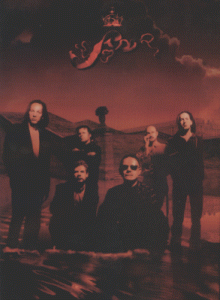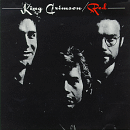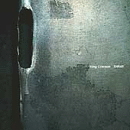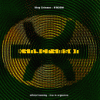Starless and Bible Black
1974
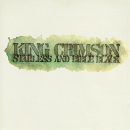
Personnel:
Fripp, Cross, Bruford, Wetton
|
With a bang, this album starts and doesn't let up for air until about mid-way through.
Of all the KC mid-period, this one perhaps is there most consistently breathless -- let's see: we've got hyped-up blues-prog in "The Great Deceiver", the schizophrenic narrative "Lament", marvelously cohesive improv in "We'll Let You Know", "Trio" and the title track, the symphonic ballad "The Night Watch", the spooky, atmospheric "The Mincer", and arguably Fripp's finest masterpiece, "Fracture." If ever a prog-rock band was lean, mean, and ready to fight, it was this one.
While the whole-tone adventures of "Fracture" and later pieces such as "Red" and "One More Red Nightmare" have captured the attention of many fans, the most distictive aspect of this band may have been its willingness to step out of its structured pieces into improvisation. The mid-period KC were arguably the greatest proponents of free-improv in the rock history. Underrated and adventurous.
Representative tracks
Lament: Second track on the album encapsulates much of what is good about the band. It begins (abruptly, immediately following a climax from the previous track) with somber electric piano chords, and a restrained Wetton vocal. Seemingly a fairly straightforward ballad, it suddenly changes when the percussion and bass enter. Out of nowhere, the whole thing comes crashing down -- slashing guitars lead to martial drumming, and before you know it, you're halfway into a funky-metallic solo bridge. Schizo, and for KC, that's saying something.
Fracture: Epic instrumental showcasing the spooky whole tones and angular riffs of Fripp's guitar. It begins extremely quietly, becomes subtly aggressive, explodes into improvisatory fire, and ends with a bang. Quite a formula, and one which the band have followed successfully to no end.
|

